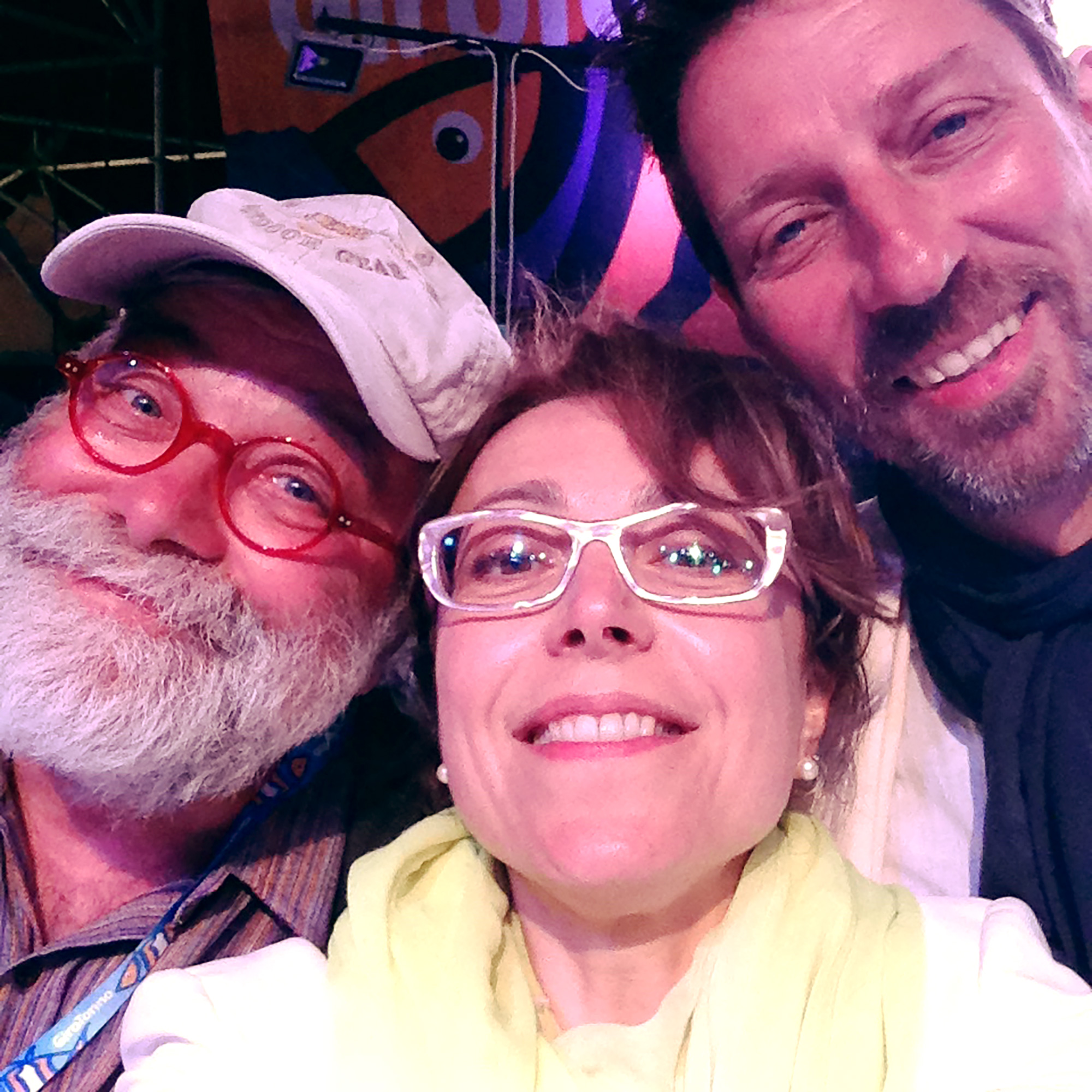Issue:
March 2023 | Obituary - Pio d'Emilia

The boldness and kind-heartedness of our late friend Pio d’Emilia are well known, and have been well recounted since his unfortunate departure. In Pio and Jon Watts, I found kindred spirits at the FCCJ in that we were at home in Japan and would go around the country on our own. In 2000 I think, all three of us got elected to the board. As president of the club a few years on there was definitely one moment where I thought of Pio: with a friend like this, who needs enemies? But that thought passed very quickly. His heart was in the right place, and his judgement sound.
Regarding his journalistic legacy in Japan, one specific story should be retold here for our records, and for Pio to be remembered by. It happened in 2003 when I was chair of the Foreign Press in Japan … but here I have to digress a little. Ever since I had learned (by coincidence, well after I joined the FCCJ) about the FPIJ, I thought the organization was not doing what it was supposed to do: break down the Japanese press club barriers. Pio held a similar position. We wanted direct access to sources, as language was no barrier. We did achieve something in the end, thanks to some scuffles featuring our dear friend.
In autumn 2003, Tokyo was rocked by a corruption scandal involving the chairman of the Japan Highway Corporation, Haruho Fujii. He had been sacked by his boss, the then land minister, Nobuteru Ishihara, and a “public” hearing for Fujii was scheduled for October 17. Someone at the ministry duly gave me the time and location when I asked, though later they said that only members of the ministry kisha club could attend.
We discussed this at the club. Our sense - well at least Pio’s and mine – was that it was pointless to continue to plead with authorities and get assurances that next time they would do their best to grant us access. Pio – who else? – said: “I’ll go anyway.” He later provided the FPIJ with a written account of events after he arrived at the hearing.
Showing my Gaimusho Press Card and wearing my Diet Press Pass, I tried to make it through the ‘checkpoint’. A man called Takashiba, who identified himself as "Dai-ichi Kohoshitsu Kakari-cho" told me I was not allowed further. "This hearing is only for invited press, namely, those who belong to our kisha club". I replied: "What about avoiding any confrontation and let me in exceptionally, as a courtesy. After all it looks like I am the only foreign, uninvited journalist.”
Of course, the official didn’t let Pio pass. But he tried anyway.
Weighing 95 kilos and having played for many years rugby, they had some difficulties in blocking me. So I was able to proceed, despite the ‘opposition’, until about 40 meters from the building entrance. I could have gone further, but the Japanese press (most of them NOT being members of the Ministry Kisha Club) rounded me up, shooting the scene, asking questions and, to my surprise, even showing some kind of solidarity. "Just let him in," shouted a reported from NTV, and I heard similar comments by other people whom I did not have time to identify.
The scene Pio described here was featured in the Tokyo Shimbun – picture included. But more importantly, Pio came away from the scene with a document issued by the ministry stating that reporting was restricted to kisha club members. The age-old excuse from bureaucrats - that they were not responsible for keeping the foreign press out as it was not them, but the kisha clubs, that organised press conferences - no longer worked.
At the same time, the European Union had been pressuring Japan to open up press conferences to European media as part of EU-Japan trade negotiations. European media, the EU embassy in Tokyo said, clearly had a disadvantage compared to Japanese media operating in Europe.
These developments led to a breakthrough in Japan’s policy on foreign media activities. On March 29, 2003 the foreign ministry issued a statement about participation in press conferences by holders of foreign press registration cards, in which it said that accredited foreign media should have access to public press events. This was accompanied the same day by a statement from the Japan Newspaper Publishers and Editors Association to all its member organizations and the secretaries of all kisha clubs stating the same. Pointless? Not long afterwards, I joined a press conference at the National Police Agency, thanks to these statements.
We owed this success in large part to our friend Pio.

